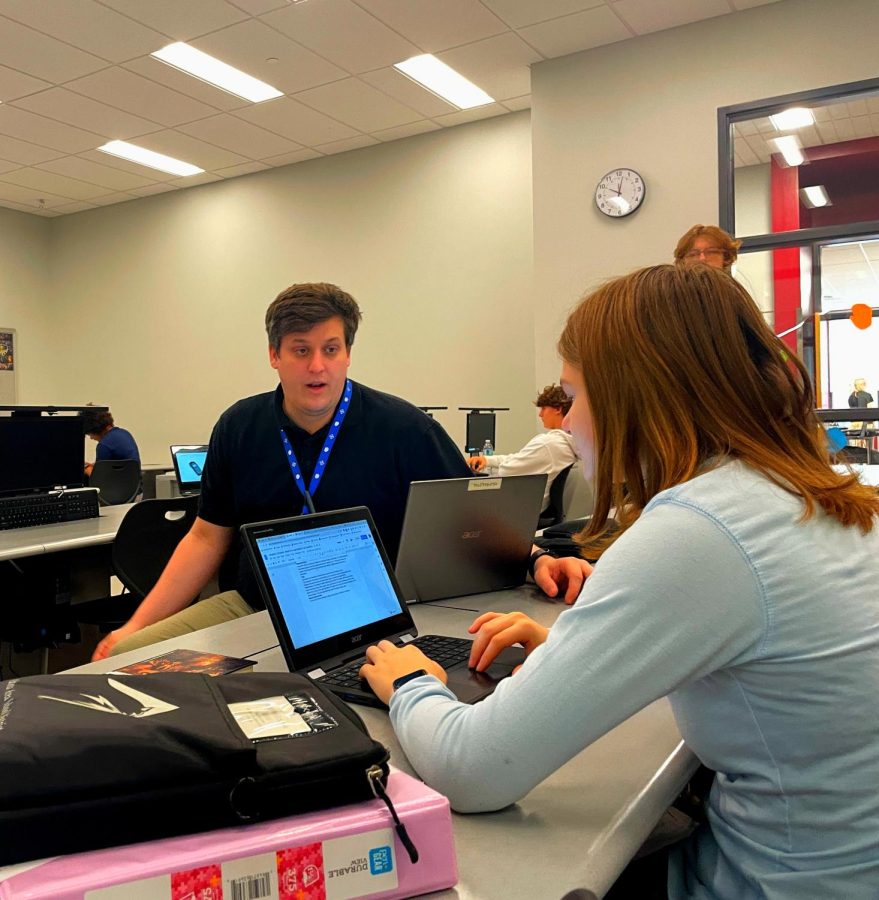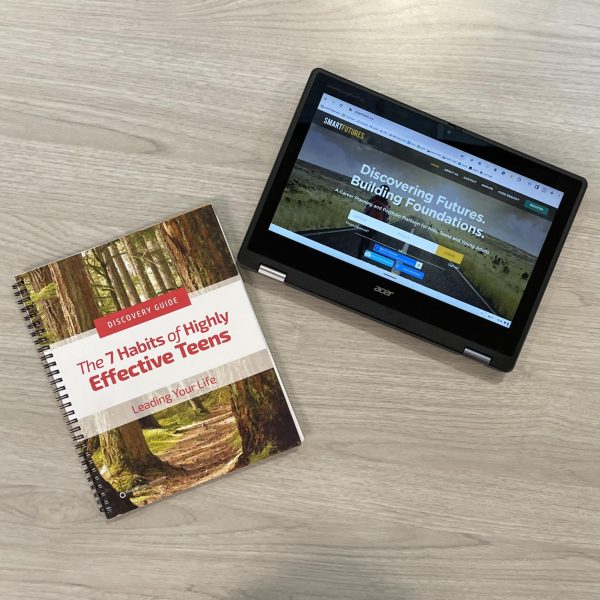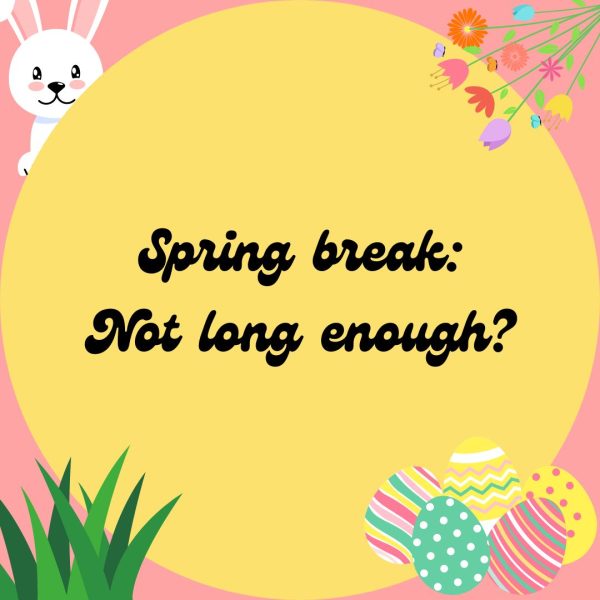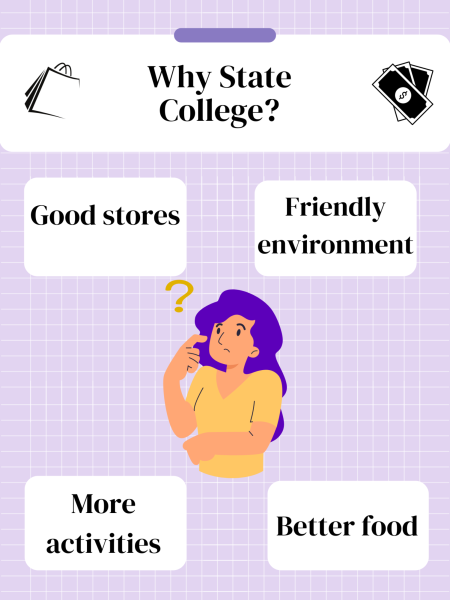Qualities in good teachers
Communication is key. Business teacher Jesse Frailey helps a student complete an assignment. Helping students understand a topic is important for success.
For teachers, there are qualities that can both increase and decrease the quality of their teaching. Some teachers have developed their own methods of handling the challenges of being a teacher, but it’s always good to learn more. Any teacher can improve the quality of their lectures and one-on-one interactions with students by learning from other teachers and trying to develop new skills.
Arguably one of the most important parts of being a good teacher is proper communication skills. Just like any other relationship, communication with students is the key to conveying the information that one is teaching.
“Communication is essential in any type of relationship, a work relationship, a friendship or between husband and wife. Inside the classroom, the more communication the better,“ history teacher Makenzie Negri said.
Teachers can develop their communication skills by getting to know students. Teachers should know the names, interests and likes or dislikes of their students if they really want to make a connection. These skills in communication can help teachers to improve interaction with each individual student as well as tailor their teaching to suit each class.
“I think communication is the entire role of a teacher. Whether we’re talking about a lecture in class, assigning work or understanding each other. I think communication is the most important part of being a teacher,” business teacher Jesse Frailey said.
In addition to communication, the ability to empathize and understand the point of views of students is integral. Empathy allows a teacher to see why a student might be failing at learning a subject as well as it allows a student to come to a teacher with problems more easily.
“Being understanding of your students is important, if they need extra time to complete an assignment, or maybe they just need a little bit more of a follow up on something,” Negri said.
Two key points in developing understanding for students are to use active listening skills and to be non-judgmental during interaction. Teachers can also practice mindfulness in order to be less reactive and more open-minded.
Some teachers connect to their students through making the way they interact with them special by identifying with them and relating to their interests.
“I think the most important part of being a good teacher is connection, being able to talk to the students in class and identify with them,” Frailey said.
Some might argue that a teacher’s job is not to make a connection with a student, that a teacher should simply tell students what they need to know, and it’s the students job to find a way to retain it. This is wrong. Connection with students is proven to increase student engagement and help students retain information.
A skill outside of interaction with students for teachers to develop is good time management. Time management can help anybody complete a large workload through thorough organization and planning.
“A lot of it is time management. Catching up on grading paperwork when students aren’t in the room. Organization is also really important. Being able to lay out what needs done each week so that you can have a good schedule of what needs done,” Negri said.
New teachers should also remember they are not alone in their pursuits. They can be helped by and bounce ideas off of their co-workers.
“I love getting ideas from other teachers. I always like to bounce ideas off Mrs. Kline across the hall or Mr. Dodson, who’s beside me because we teach the same subjects, so I can always check in with them. They give me advice or resources I can use in the classroom which are very beneficial,” Negri said
Developing these qualities is a great way for teachers to learn new things and become more effective at their trade. A teacher who develops these ways of interaction might even learn to enjoy their job more than if they didn’t use them.

This is my second year on the newswriting staff. I mostly write opinion columbs on topics that I find important. This year, I plan to start a podcast with...




![The release of Lisa Frankenstein on February 9, 2024, has made it the best movie of the year so far. [Made with Canva]](https://aahsmountainecho.com/wp-content/uploads/2024/04/LisaFrankenstein-cover-1-450x600.jpg)
![Rivals. Spotify and Apple Music are the most even on the streaming-service playing field. Spotify was officially launched in 2008, and Apple Music in 2015. [Made with Canva]](https://aahsmountainecho.com/wp-content/uploads/2024/04/Spotify-vs-Apple-music-600x600.png)
![Lets go Bucs! The Pirates 2024 season started on March 28 with a game against the Marlins. [Made with Canva]](https://aahsmountainecho.com/wp-content/uploads/2024/04/Pirates-season-underway-600x600.jpg)




